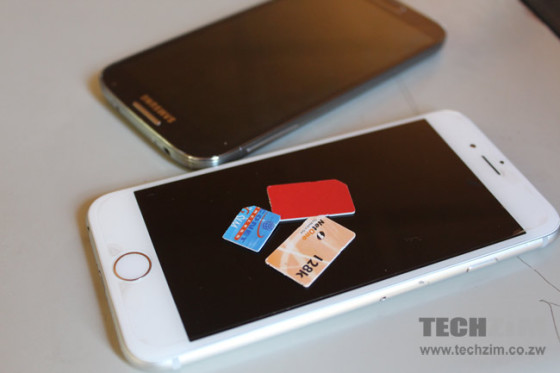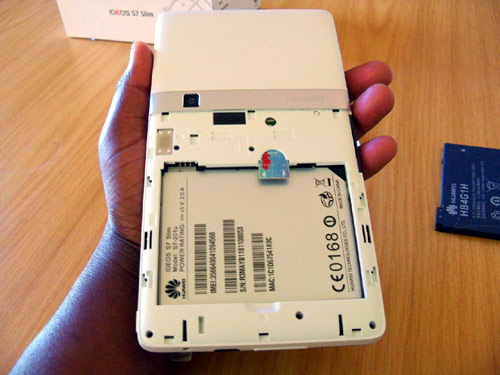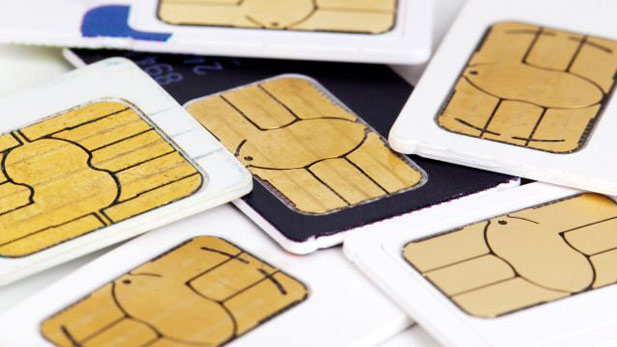Some of us are old enough to remember when SIM cards were out of the reach of many people. I’ve heard stories of people selling their cattle to buy SIM cards and that is not an exaggeration, we really did buy cards for over $300 at one point.
Some of us are still bitter about that because we understand that it was a lack of competition that led to that. We had just 3 mobile network operators (MNOs) and as demand rose they realised we had no other vendor to look to. So they charged whatever they wanted and we paid, we murmured, but we paid.
“Those greedy bastards,” we were taught to think as kids. However, looking back, it was a little more complicated than that, kind of like the whole #DataMustFall debate today. There was a greed element to it, of course, but there were also some legit reasons.
Zimbabwe had started on its journey to total mayhem in the hyperinflation era and foreign currency was scarce, kind of like today. So, as the cost of producing and importing SIM cards remained stable in foreign currency, mobile network operators had to hike prices.
Of course, what they charged was excessive for what they were making up for, in my opinion. However, they did struggle to acquire foreign currency needed to import the cards, leading to limited availability. With high demand and low supply, they took full advantage.
The storm passed

Anyway, today the SIM card is no longer a status symbol. Sometimes prices can rise to $5 when supply chains are disrupted but for the most part you can get one for $1.
At one point, the $1 SIM card came with $1 airtime and so it was actually free. The MNOs had realised they stood to make more from repeat business than from the sale of SIM cards.
One hopes the same will happen to data prices soon. It’s just a matter of time until we are paying $15 for unlimited mobile data plans. At least I prophecy so.
The SIM card and your personal information
When SIM card prices fell, purchasing one was easier than purchasing tomatoes from the table by the corner in your neighbourhood.
Of course, you had to give out some of your personal information, you know; name, address, height, blood type and mother’s maiden name but for $1 a pop, we were not complaining.
However, the mobile network operators were not really collecting that information. You could approach a dude by the MNOs store’s door, get a SIM and ask him to submit the information on your behalf.
As a result, some of these application forms got to the MNO with mistakes and some had fake names altogether. How could they not? – the vendor in the street couldn’t care less what you wrote down, as long as you paid cash.
Recently, the regulator has been on the MNOs’ case to make sure they collect the information, including copies of national IDs and proofs of residence. Some people report getting lines without providing some of that but that shouldn’t be the case.
The SIM card and the government
Why does the government want this information collected? Well, let’s turn to Afghanistan to paint the picture. Let me land.
When the Taliban returned to power in 2021, some Afghanis understandably fled the country, many to neighbouring Pakistan. Kind of like Zimbabweans flocking to South Africa.
Now, Pakistan has had about enough of these refugees and is kicking then back from whence they came. Kind of like how the South Africans feel about Zimbabweans.
You can imagine the fear these Afghani refugees have when they are forced to trek back to their Taliban run country. However, they have been surprised to find care packages waiting for them as they reenter the country.
Their government prepared food, tents, and free SIM cards for them. Curious, isn’t it? Food, shelter and a SIM card. A family can get up to 4 free SIM cards and even women and girls, who are kind of like second class citizens there can get those SIM cards.
The Taliban stripped away their rights to even drive but feels they should get SIM cards which will expose them to the internet. What gives?
This could be a sign of even the Taliban understanding that the digital revolution cannot be stopped and that economies stand to prosper when the population has access to affordable and reliable communication.
Nah, it’s not that.
The SIM card and control
When a government has access to information about SIM cards, it gains significant control over its citizens and their communication activities. I think it’s safe to assume the Taliban has access to the MNOs’ systems.
Here are some of the things access to SIM data grants governments:
Surveillance and Monitoring:
- Tracking location and movement: Through base station (tower) data, the movement of individuals can be tracked in real-time. At any given time we can see where you are, roughly, by looking at where your SIM card is connecting from.
- Interception of communications: By accessing call logs, text messages, and even internet traffic, governments can intercept and monitor communication. Which would be useful when some youths plan an uprising.
- Identifying individuals: SIM card registration data, including names, addresses, and identification numbers, can be used to identify individuals both online and offline, facilitating surveillance and targeted interventions.
No wonder governments love promoting the use of mobile phones. Who can find fault in them promoting communication, information access, and individual empowerment? – as they would put it.
Makes you look at the Zimbabwean government’s celebration of our mobile penetration rate (97.5%) in a different way, doesn’t it?
It doesn’t even end there. Again, the level of control varies depending on the specific policies and regulations in place. However, the following is also possible all from the humble SIM card.
Censorship and propaganda
Governments can utilise targeted marketing and advertising through SIM card data to influence public opinion. It’s becoming a staple in Zimbabwe, where every election cycle we are bombarded with SMSs from the ruling party. We have talked about this countless times.
They can also engage in social control by analyzing communication patterns to build detailed profiles of individuals. They can use those profiles when making decisions on services, employment, and travel. You might find that your town or neighbourhood is skipped when free T-shirts are disbursed. Pane maT-Shirts atichakupai and I never got one.
Governments can also disrupt communication networks, including mobile phone services and internet access, during protests or periods of unrest, silencing dissent and hindering the flow of information.
Last year, one opposition party tried to build an independent communication system that the government could not control. All to make sure they could send information from all corners of the country without inopportune network slowdowns disrupting their work.
I don’t think the parallel vote tabulation system worked as intended in the end but it was only conceived because of the threat of the government disrupting communication networks.
The humble SIM card

We may not look twice at the humble SIM card but it is a valuable little thing. For the MNOs it presents a customer they can extract value from for years to come and for the government it’s worth much more than money.
You cannot fight this, you have give out your personal details to play. Now you can do so knowing just what you’re giving up and weigh that against the access the SIM card gives you.
Or maybe when you got your SIM card, the MNOs and the government were still lax about the whole personal information collection thing. In which case, don’t lose that card.
Anyways, these are just the ramblings of a tin-foil-hat-wearing fella, so don’t take it too seriously. After all, some countries have policies and laws to ensure the government does not abuse its access to SIM card data.
I’m sure Zimbabwe is one of those countries, notwithstanding the unsolicited Zanu PF messages that are sent to the general population every election cycle.

28 comments
I don’t know what’s worse Gvt or these MNO taking your private information.
One is the fire, one is the pan. Kwese kutsva.
“..we rally did buy cards…” really rally ?
Ahhh, that feeling when spell check fails you because you used the wrong word spelled correctly 😂
It’s sorted 😂😂
Given how kyc means most registered Sims can technically act as low level National ID, this was inevitable. So inevitable, in fact, the scenarios you described have been reality to different extents in different countries for years around the world. No tinfoil hats required.
True. It is just reality. We might not know exactly how much access the govt has but it has enough to work with.
I call BS on the $300 Sim card. MNOs did sell them at way higher than current prices but I remember purchasing mine for somewhere in the region of $40 to $60 directly from an MNO. What pushed the prices that far is the usual and casual Zimbabwean greed of 500% mark up we have normalized to this day. Same case with Starlink. I bet Noone has a receipt to prove that and neither did MNOs benefit from it.
My big sister got me my line for 200usd, and she did it because that was a good deal! I believe there was a cheaper official price but unless you had a connection in the company, the only ones who had them were the dealers.
You’re right that we were not paying that much directly to the MNOs. They never had any stock and so we went to the dealers. Who we wondered how they always had stocks. That’s where the tinfoil hat comes in. Did the MNOs have “arrangements” with these dealers who always had more stock than them? So, I’m afraid we cannot rule out that we indirectly paid much of those exorbitant prices to the MNOs.
These were street prices. Legally the network’s couldn’t sell at those exorbitant prices, so they would give their street guys most of their stock when they had and just officially sell a few to comply with the law. Why did the street guys always have the latest sim numbers when they came out and u never heard the network’s reporting such activity coz they were in on it
Sim cards once upon a time traded for USD $200-300 easily. Maybe u were too young to remember or weren’t even born yet….
I felt I should not vote for a party that intrude into my mobile sphere. When I was phoned I asked him how he got my details and he said he got them from ZEC and as a result I withheld my vote. NetOne denied giving my cell number to ZEC so it was like a dog chasing it’s tail
We have no recourse on that matter, unfortunately. The MNOs deny any wrongdoing and the govt won’t answer any questions on this.
I remember buying my sim card for USD 20 and R300 on black market. That’s was in 2004 and on that day I had gone to OK to look for bread which was scarce then. In perspective our country has been in the economic jungle that long.
We’ve been knee deep in the trenches for decades, it’s a marvel we’re still standing.
Mr Leonard could you chat with your colleagues at Pindula, the Market place seems to be down and it’s been over a month since it was fully functional.
Pindula Marketplace is functional you just need to pay for your advertising
Tuckshoplus is an android app for retailers in Zim (especially sole traders). It helps them manage every aspect of their store e.g inventory, customer relationships, Point of Sale etc. The App is completely offline. Here’s a channel link if anyone is interested in the Beta version coming 25 January 2024:
https://whatsapp.com/channel/0029VaEfMOF7IUYNeiZ0Tw2l
In my community, retailers are always complaining kuti maBusiness avo haakuri. I looked at the issue and saw kuti it’s probably improper record keeping, I’m trying to solve this.
that’s bs buy their very nature they have to have no records. they dint know what’s going on
they not big enough to warrant this and they trying to hide.
I don’t get you. How can you say they are not big enough to warrant record keeping when they use pen and paper to keep records already. Clearly they see the value 8n recording some information, I think there’s a potential for this. I’ve joined the channel, this Dev has a plan.
well this sucks
Those care packages must be courtesy of international donors. You might find there are about standard all over the world for returnees
Can you guys add reactions so that we can react to comments
I worked at a government hospital. They arranged with netone for staff lines. They applied. My name was missing and they put lots of strangers who paid a commission. I was bitter but couldn’t do anything. I later got on the econet liberty scheme but after begging the would be powers to add my name. Those were the days
A good article. I am unaware of the Taliban’s humble offer. But it is sure sure easy to put under the radar something you gave someone for free than.
Very off topic, but OMG!!! Unlocked Samsung S24 256GB is going for $250 right now for a limited time direct from their store! That’s before trade in!!! Children of God, I just wanted to share that piece of joy/suffering! If you have Diaspora willing and able, make a plan. If your wallet is strong, I guess you can ship it.
Strive is a thief that’s when he made a fortune